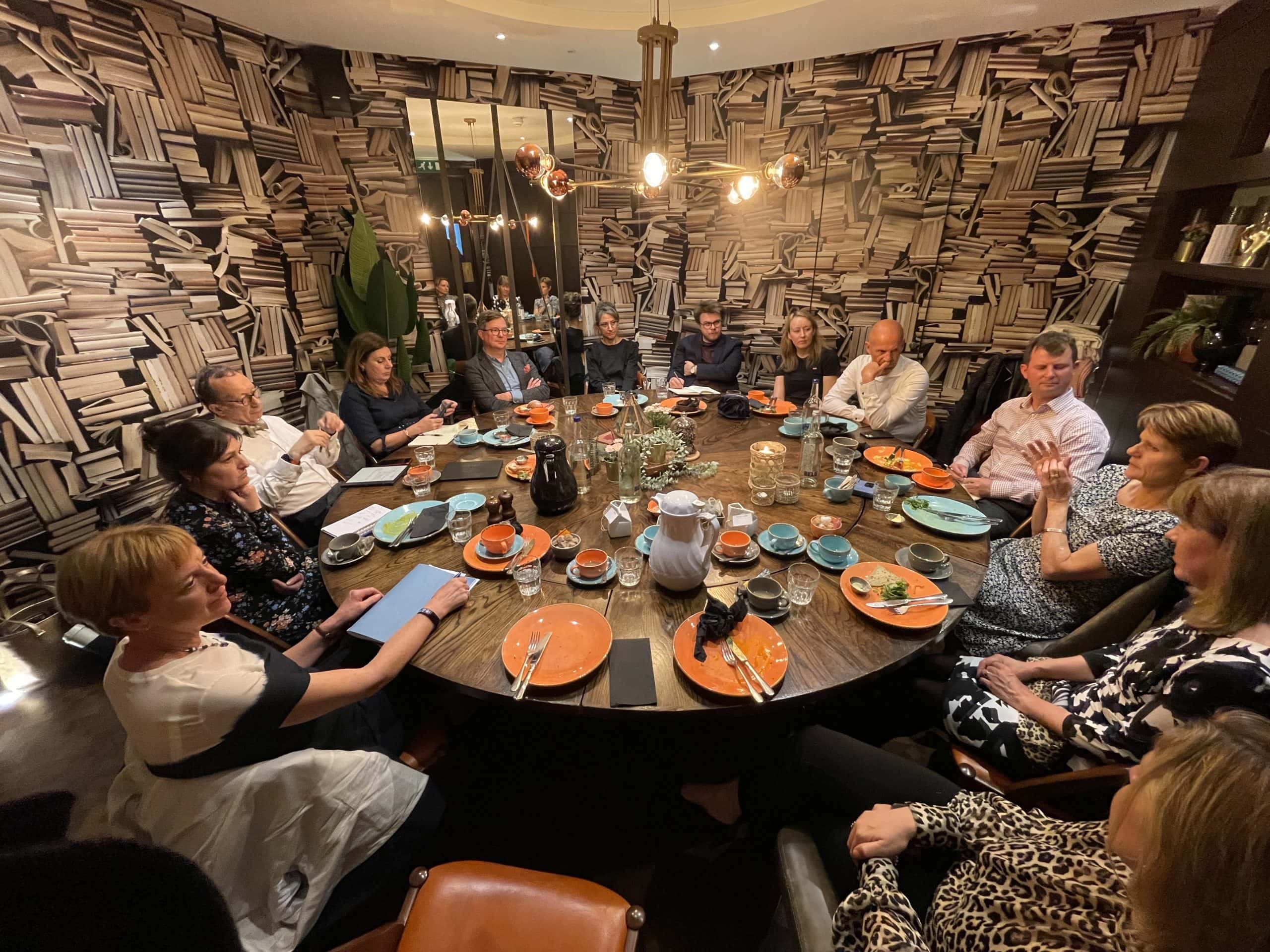Briefing’s knowledge systems brunch found evolution on the menu – and is the intranet dead?
Following a series of online knowledge management (KM) discussions held earlier in 2022, the Briefing team recently sat down in-person with a dozen or so of the legal market’s KM leaders to discuss their tech challenges and potential solutions.
Now, this wasn’t a Q&A with a panel and moderator or anything quite as formal as that – though Richard Brent, Briefing’s head of content, hosted the sit-down brunch at an undisclosed location in the City, it was very much an honest, participant-led affair under Chatham House rules, to encourage as much open sharing as possible.
Sharing is caring
We started off where many discussions around knowledge sharing begin: the difficulty in incentivising lawyers to share their knowledge, rather than move on swiftly to chargeable activities. In part, we heard that this behaviour can arise from the sheer number of systems lawyers are expected to engage with when it comes to squaring off a matter and entering lessons learned into a system – a problem made all the worse by the proliferation of systems during the pandemic. One leader pointed out the difficulty IT professionals often have in speaking ‘legalese’ to lawyers and understanding their requirements, while another cited the low priority – quite understandably so – that lawyers put on memorising the use of such systems.
Another theme all the leaders agreed on though is that the demand for knowledge teams to support their firms and keep sharing more knowledge has increased as a result of the tacit learning gap that’s opened up through remote working.
The result can be a knowledge “free-for-all”, with different teams and practices using systems in subtly different ways, many firms approaching seemingly useful tools like Teams and Yammer differently too, and teams trying to produce additional knowledge content to meet demand. That’s required an increased level of collaboration between departments for at least one firm, which has found a need for a system of confidentiality screens and more structured methods of collaboration.
To discourage the formation of knowledge silos, some of the leaders also kited the idea of implementing matter maps, but agreed that deciding who manages those processes can be problematic and could lead to more silos if not handled correctly.
Indeed, a new approach to knowledge management overall is potentially emerging, involving use of tools such as Teams not necessarily to capture new knowledge – an approach that can run the risk of creating silos and confusion, as already mentioned – but to push knowledge to specific teams, potentially by integrating them into workflow tools and processes.
This could be the core of new, more agile, ‘knowledge communities’, spun up quickly to react to specific needs. That kind of arrangement might be particularly useful in scenarios like the recent surge in sanctions against Russia, we heard, although firms are not all up to speed to the same degree.
Intranets re-imagined
To build out such an arrangement, law firms may also need to rethink the purpose and structure of the intranet as a place to store and surface knowledge. We even heard the question: is the intranet dead? Frequently in need of technical upgrades, often including a move to the cloud, and a tool that requires a huge amount of resource to maintain, the talk turned to how ‘the intranet’ can fit into a world where Teams, Yammer and the rest are being used in conjunction with other KM systems. There are cultural considerations here as well – one leader discussed the difficulty of managing the intranet in conjunction with other departments, such as HR, which often uses the intranet for its own purposes but leaves technical management of the system to KM – creating a split ownership of the system.
What might the intranet of the future look like? Well, ownership might default instead to comms teams, with the KM aspects somewhat hived off and slimmed down for KM to manage on its own.
It might be a less ambitious but more effective vision – and one which might help it to function as a ‘vehicle’ for knowledge storage, which could then be pushed upwards to a more useful ‘hub’, able to distribute knowledge and surface what individuals specifically want, much like a dashboard. Exactly which systems feed into that is up to firms, but the general take in the room was that such hubs could benefit from having a little AI magic applied to them to personalise the knowledge sharing and search process – the ‘Amazon-ification’ of useful business content if you will.
Data struggles
While a new hub model for knowledge may take time to mature, almost every knowledge leader agreed that managing the data underlying it needs work. “Every knowledge department needs a data strategy,” one leader declared – but they admitted very few had yet figured out how that strategy should work. Nor do many KM departments have the skills internally to manage data properly and use reporting tools such as Power BI, it transpires. Those skills often exist in the finance or the BD and marketing teams, who may agree to share the expertise around. But doing that sustainably, or even locating the skillset in a world where new people could be hired to work on data more broadly, are further challenges. See Briefing’s February cover story, Data integration – knot a problem? to see how some other firms are approaching centralised data science.
And until we have knowledge of our next gathering, keep an eye on Briefing for smarter business management lessons that can be applied right across the firm.

Briefing webcast | The building blocks of business intelligence
Cheryl Ashman
Senior program manager, business intelligence group, White & Case
Gareth Powell
Group data officer, Irwin Mitchell
CJ Anderson
Director, Iron Carrot
Suzanna Hayek
Deputy editor, Briefing



